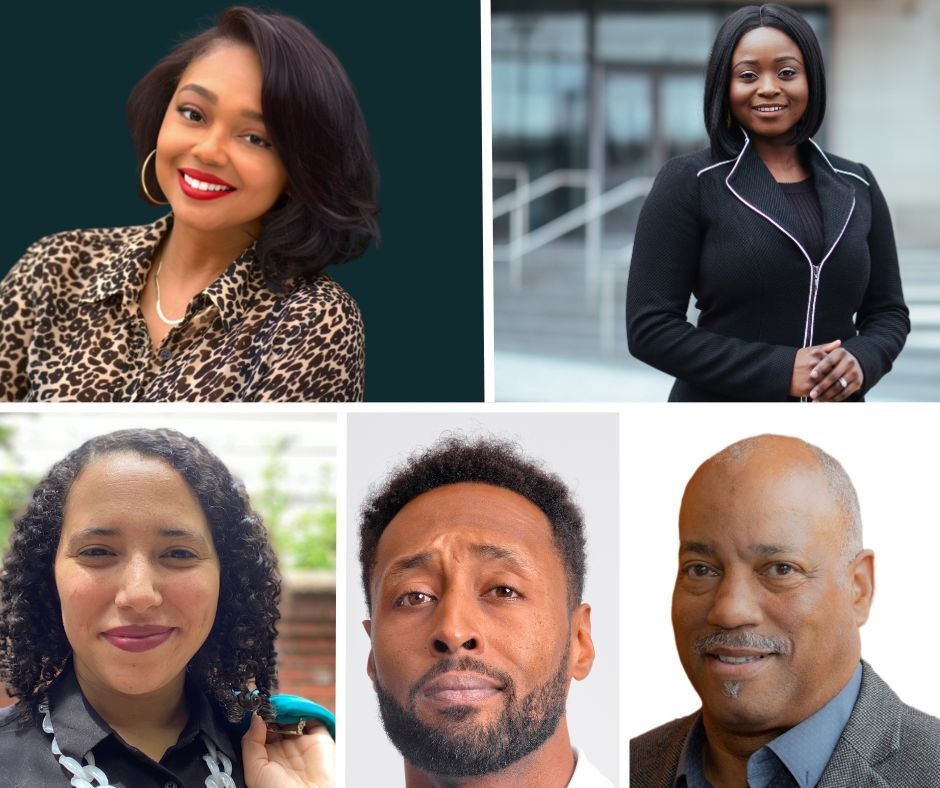“It’s about what you’re able to contribute and do, and the money will come,” said Kevin Williams, cofounder of Black Squirrel Collective, a Philadelphia firm that connects entrepreneurs and real estate developers of color to resources.
There’s also stability, something Williams, 63, who grew up in a family of entrepreneurs, was raised to prioritize.
“When I was off to college, my mother always told me to make sure that I knew bookkeeping and accounting, because if you need a job, you can always find a job,” he told Technical.ly. “So I’ve never had an issue of being able to have gainful employment.”
Thriving in Philadelphia
More than 87,000 Black professionals between the ages 35 and 64 live in Philadelphia, according to a Technical.ly analysis of the most recent IPUMS data. Around 7,000 of them earn more than $100,000 per year.
However, Black professionals, especially those earning over a high-income threshold of $100,000, can highlight wealth gaps. As Technical.ly found in our series Who Makes $200K, the number of high-earning Black residents ranges considerably by geography. Of cities with large Black populations, Philadelphia’s Black professionals have one of the lowest rates of those earning $100,000 or more — less than Atlanta, Austin, Baltimore, Boston, Chicago, DC, Los Angeles and Miami.
Williams is one of five Black professionals in Philly we spoke to for this part of Thriving, a yearlong series focused on what economic security looks like for different groups. We wanted to know: What are the benefits and challenges of being — and working toward being — a Black professional earning upwards of $100,000 a year in Philadelphia? What does it take to thrive in the City of Brotherly Love?
They told us about their journeys, their challenges and how they got a seat at the table. Here are their stories.
Kevin Williams, 63: ‘I wanted to wear blue suits and make a lot of money’
Although his mother’s advice made him employable as an accountant if all else failed, after graduating from Texas State University with a minor in computer science and a major in marketing, Williams dreamed of selling IBM computers in the 70s, before the days of Best Buy big box stores.
“I wanted to wear blue suits and make a lot of money,” he said. “That was my dream. But then I got knocked down a peg and was told that you’re probably not going to get a job with IBM.”
After two interviews with the company, he got the message that they worried their client base wouldn’t trust a Black man to manage their accounts. Williams pitched an alternative: “I suggested that I work with one of their third-party vendors, which I did. And that was my first real feeling of what it meant to make more money than what you need.”
Still in Austin in the ’80s, Williams continued to be straight with potential employers to get ahead.
“I did my first contract job, and it was with a business called Austin Weekly, a newspaper like Philadelphia Weekly,” he said. “I went and interviewed for the job and I told them how much it was going to cost. He looked at me and said, ‘Well, what makes you think you’re worth that much?’ I said I just valued it, not what I thought I was worth, but what the job was worth.”
He stood his ground and refused to let the manager diminish his work’s value. After some back and forth, he got the job — and the manager respected him more for it, Williams said.
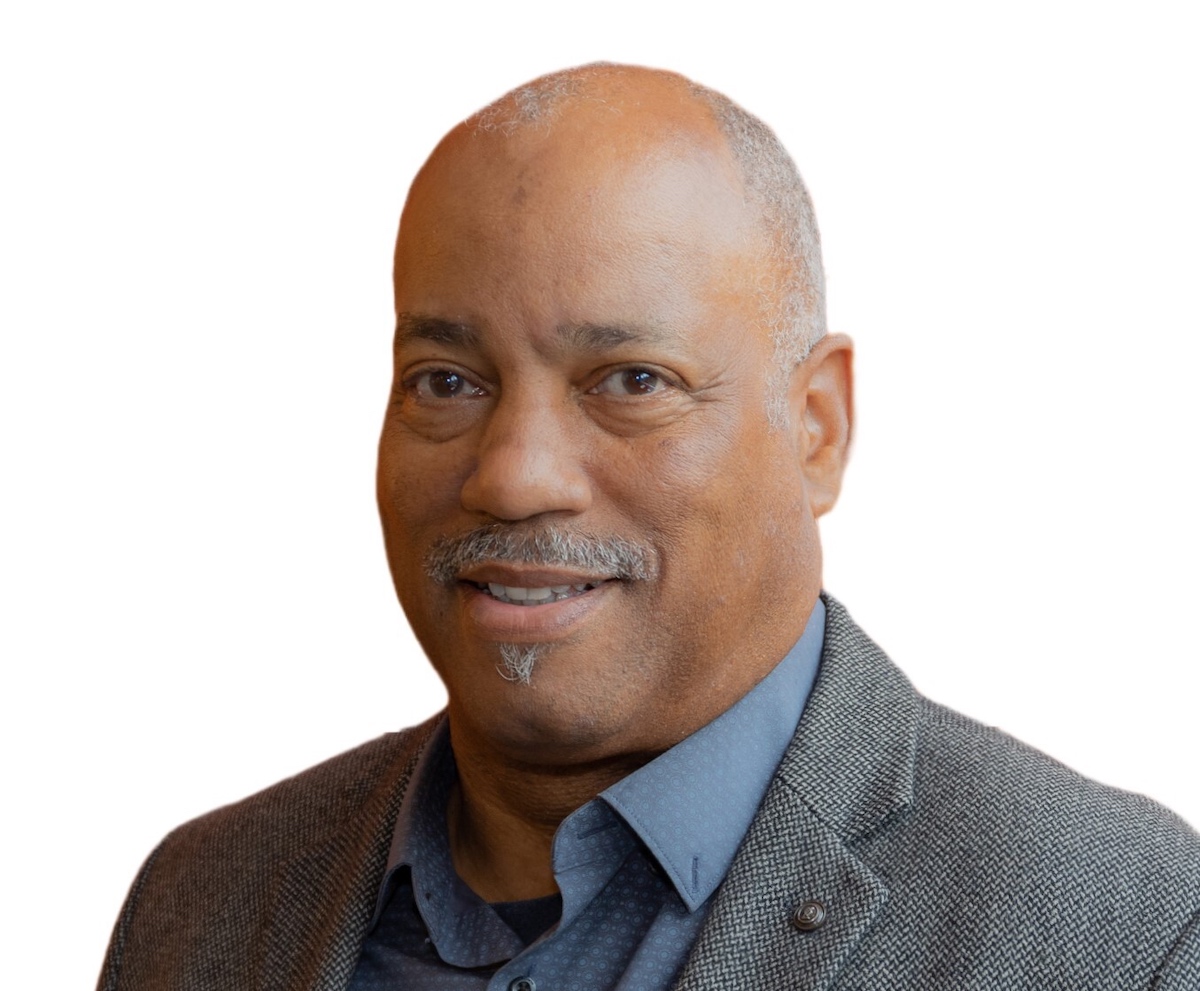
Kevin Williams. (Courtesy photo)
That boss, an older, white preacher from Alabama who once told Williams that the only Black people who made money where he came from were morticians, would occasionally give him financial advice, especially about buying property. That led him to buying his first home.
It was after he moved to Philadelphia that things came together for Williams’ career.
“I did business development for small businesses and built a nice little network that way,” said Williams, now based in East Falls. “Some of the people that I’ve met along the way are the very people who I’m partners with in my current business. And we’re all what we call just three old Black men who have a decent network and pretty good skill sets in our area.”
“A lot of how I got to where I am today and who I am is really about the people that I’ve met along the way.”Kevin Williams
Black Squirrel Collective is centered on coming up with solutions for problems they used to just complain about as business owners. The three founders — Williams as CEO, James Burnett as chief strategic design officer and Thomas Webster as chief program officer — are all business owners who started the company without pressure to make a lot of money, because they were all semi-retired, Williams said.
“A lot of how I got to where I am today and who I am is really about the people that I’ve met along the way,” he said. And some of the most valuable advice can come from unexpected places. That Baptist preacher boss, for instance? “I didn’t necessarily like him. I probably would have trusted him better if he would have been an old Black preacher. But would I have gotten the same advice from that? I can’t say that I would have.”
His firm’s mission statement is “to be the nexus point for bringing needed resources and capital to underserved communities to create generational wealth.” Money isn’t everything, but helping people who don’t have it build generational wealth is at the core of what he does.
“At some point you have to realize that if you’re a minority, you have to be an activist to some extent, they’re not going to give it to you,” he said. “By they, I mean those who have money. Coming up in the ’70s in the ’80s, it was about ‘Look, you got to take what you want, that’s just the way it is, and once you get it, you don’t give it up.'”
Aïcha Ly, 33: ‘The journey has been finding the strength of my own identity’
Aïcha Ly had never felt like a Black person until she and her family immigrated to the US from Senegal, West Africa when she was 11.
“I was just me in Africa,” she said. “Everybody looked like me — doctors looked like me, lawyers looked like me. So I never felt out of place in any way, shape or form. And moving to America was a big culture shift for me linguistically, because I didn’t speak English; culturally; and then racially, being a minority for the first time in my life. And the reason I share that background is because all of those experiences shape how you move through the world.”
Ly, now 33, spent her early years in the United States in Rhode Island with her mother and older siblings. She attended Rhode Island College before making the move to Philadelphia to earn her MBA at Drexel University’s LeBow College of Business.
“I fell in love with the city. It is one of the most beautiful places I’ve ever lived,” Ly said of Philadelphia. “It’s a big city, but it still very much feels like a community. I lived in South Philly for a while, but the last few years I’ve been in Northeast Philly in Cheltenham, where every day you’re walking out the door and you’re saying ‘Hey, neighbor’ to all of your neighbors. Philadelphia became my home and gave me a true sense of belonging.”
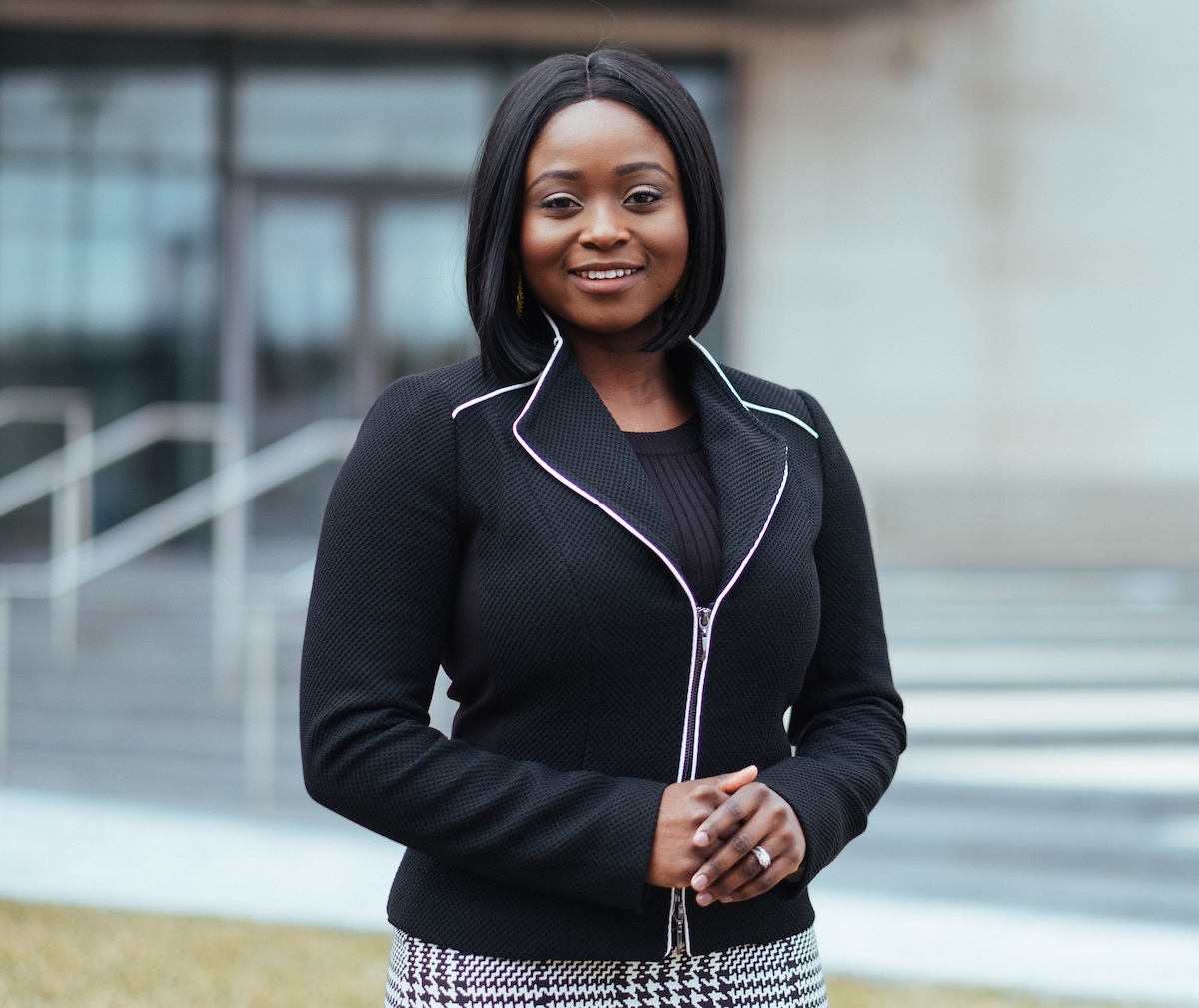
Aïcha Ly. (Courtesy photo)
After graduating from Drexel, Ly’s professional career path included Independence Blue Cross, Comcast NBCUniversal and Comcast Business, where she was the head of consumer research, before moving to mobile analytics company Opensignal as head of consumer insights in the fall of 2022. She also founded SITB, or Start In The Beginning, a public speaking coaching platform.
“My work there is empowering professionals to be more impactful communicators and make a lasting impact,” she said. “I want to help professionals with the words that they’re saying and delivering, whether it’s presentations or they’re an entrepreneur, leaving a lasting impact and making them unforgettable. I love, love both of my jobs,” referring to her full-time work with Opensignal and her own business.
SITB, in essence, offers the kind of support she wished she’d had as an aspiring professional navigating a corporate world that was an entirely new culture.
“Certainly, as you begin to enter corporate settings, the visual of a professional has a certain race tied to it, a certain type of speaking tied to it. It can look very, very different than most Philadelphians,” Ly said. “The journey has been finding the strength of my own identity inside me to consistently remind myself that no matter what is happening externally, let me reinforce within myself that I am more than worthy of having a seat at this table, that the culmination of my life experiences is in fact what makes me incredibly worthy of having a seat at this table.”
Ly said she first really felt like she was thriving in Philadelphia when she found her community in Cheltenham. There, she was again surrounded by people who look like her, have similar socioeconomic backgrounds and have, like her, worked their way to financial stability.
“When the world is your mirror, it’s easier to see yourself more clearly,” she said.
Sara Hall, 35: ‘I’m getting there’
The City of Philadelphia’s director of digital services, Sara Hall, was interested in civil engineering while growing up in Newark, Delaware. She also hoped for a soccer scholarship, which led her to Philadelphia University.
The school didn’t offer civil engineering, so she went with architectural engineering instead. The five-year degree gave her an introduction to human-centered design, followed by a graduate degree from the University of the Arts for industrial design, both of which gave her the foundation for much of what she does now with the city government.
“I lead a team of designers and content folks to build the design side and the content side of the city’s public facing websites and applications,” Hall said. “We work closely with software engineering to build pretty much all the public-facing digital ecosystems.” She’s also an adjunct professor of graphic design at Temple University’s Tyler School of Art.
Between graduating and Hall’s current position, she tried different things — freelancing, restaurant industry work, a job as a multimedia experience designer at Jefferson Hospital that proved her abilities in project management.
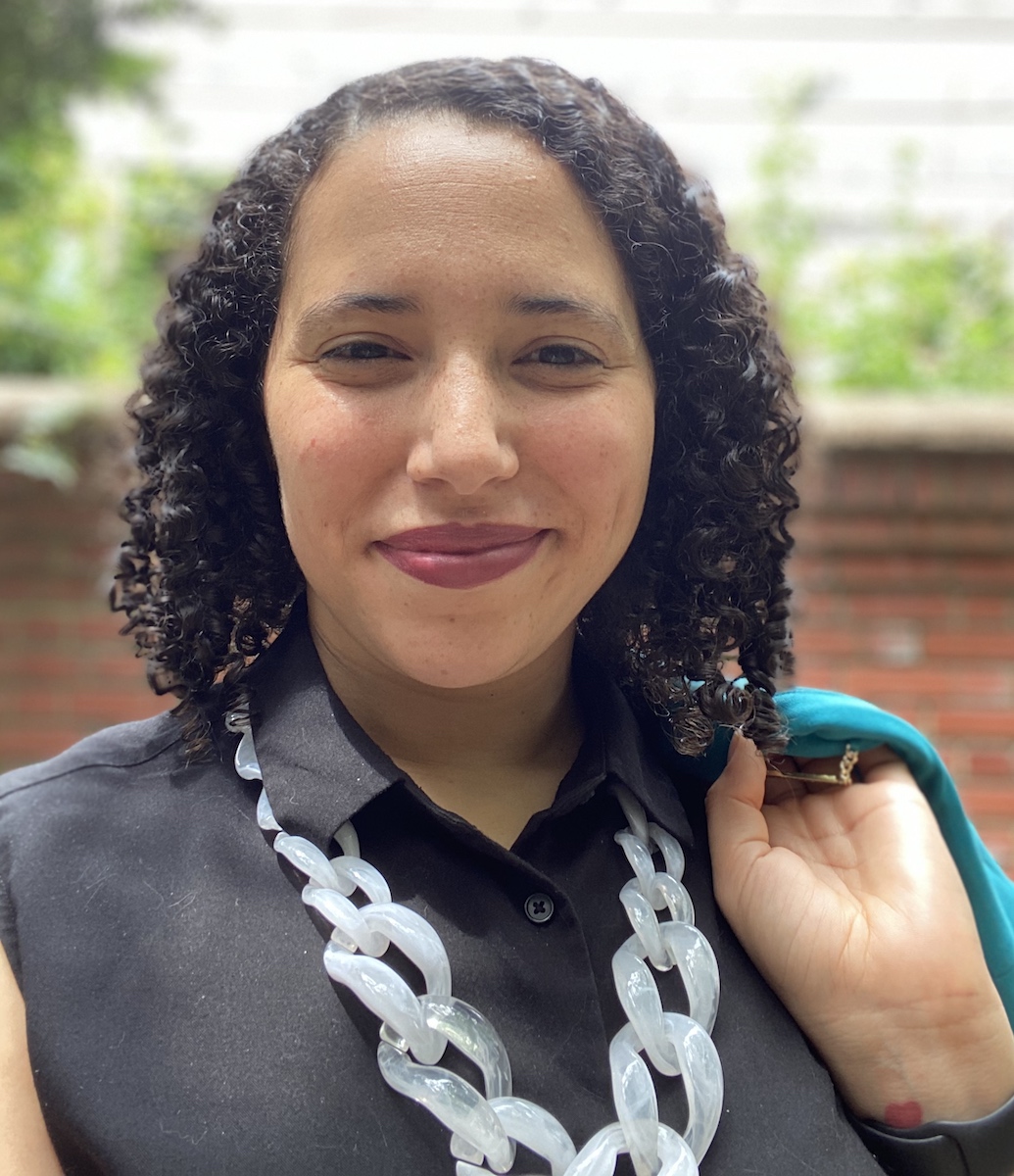
Sara Hall. (Courtesy photo)
Despite having a director-level position, Hall sometimes questions whether she’s really a “high earner,” even earning a salary over $100,000.
“When I think about my salary, I should be doing so well,” she said. “I think about, what if I didn’t have student loan payments, if I didn’t have obligations that I’ve kept.”
Lack of generational wealth and not having parents who can help financially is a factor, she said, not to mention that helping out family financially (sometimes called the “Black Tax”) can make building up your own wealth hard.
Asked if she considers herself to be thriving, Hall, like the other Black Philadelphia professionals Technical.ly spoke to, considered making an impact in the community as a factor.
“I would say I’m getting there,” she said. “I have a lot of student loan debt. And I have a lot of financial mistakes that I made in my earlier years that I’m working on now. But I think one of the things that I find important to myself is mutual aid and giving money back to the community that I live in.”
Dyshaun Hines, 37: ‘Find yourself in settings that are supportive of your talents and ideas’
You can’t get more North Philly than brand consultant and startup founder Dyshaun Hines.
“Not only did I graduate from Temple University, I was born in Temple Hospital,” said Hines, 37.
Growing up in the neighborhood and eventually standing at 6’3″, Hines was constantly asked if he played basketball. Hines rebelled against the idea that he was meant to be a student athlete from a young age, gravitating toward student government instead.
“That’s really where it started,” he said.
As a brand consultant, Hines recently served as program director for the Philadelphia Global Identity Partnership, a coalition of over 40 organizations and over 100 executive leaders from the public, private and nonprofit sectors with a common goal to advance Philadelphia’s global brand narrative. In other words, they’re working to make Philly a destination for business talent and investment — combining Hines’ passion for the social economic political ecosystem in Philadelphia with tourism. His Temple degree, after all, is a master’s in travel and tourism, with a focus on sustainability.
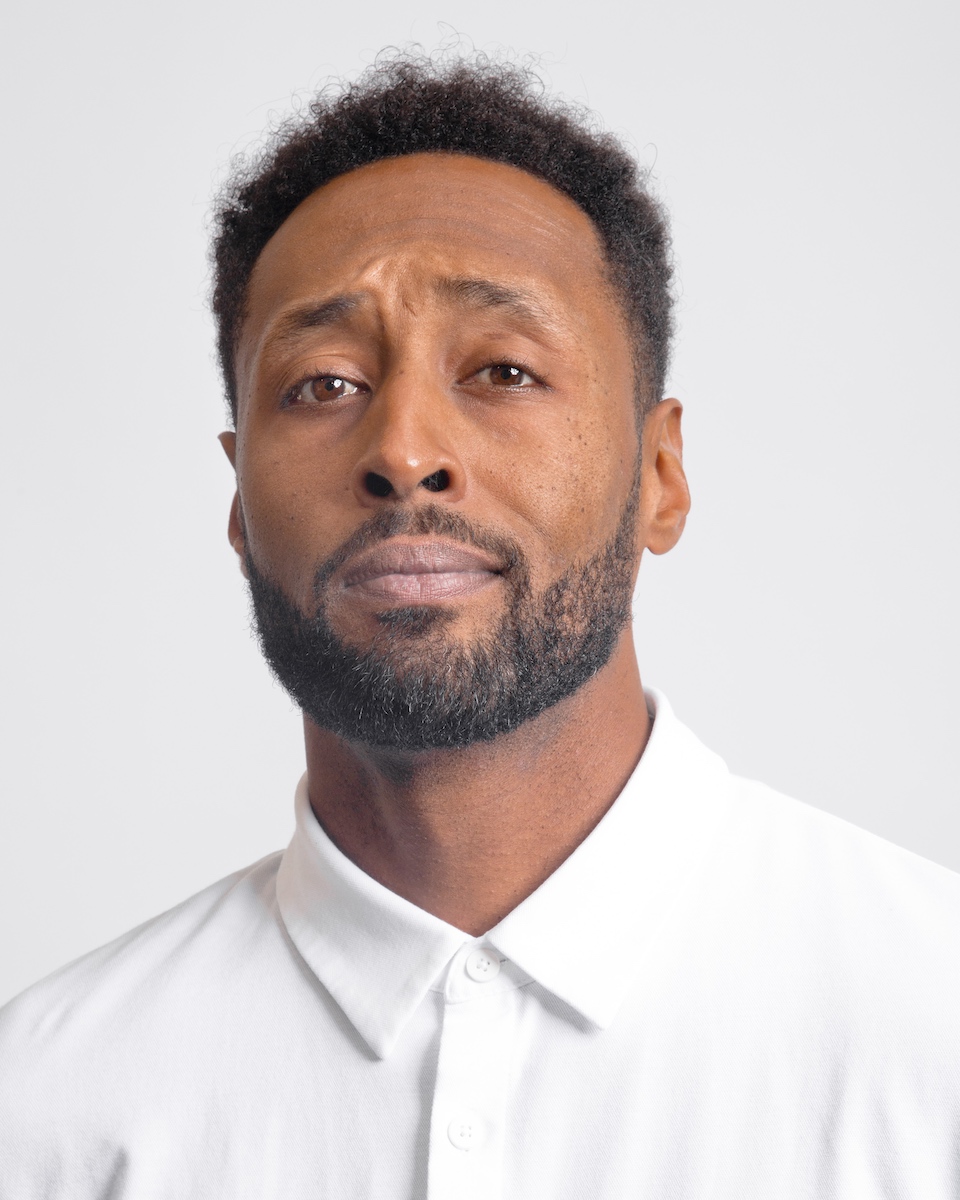
Dyshaun Hines. (Courtesy photo)
Though he was born, educated and still lives in Philadelphia, Hines has always had an interest in travel.
“Growing up in North Philadelphia, our idea of summer vacation was Wildwood. I always wanted to see more of the world,” he said. That desire led him to join the US Navy: “I’m from what I guess we’ll call a marginalized family. So, early on in life, the Navy became what seemed like an option to get that plane ticket overseas and experience living in different cultures.”
It didn’t work out as planned. Instead of being stationed overseas, he was stationed in south Texas. He was granted a medical separation after a year and a half following a diagnosis of Crohn’s disease. After working for a while as a civilian for the Department of the Navy — which also wasn’t working out — Hines decided to cash out the savings he’d managed to put away, and made a plan to backpack across Southeast Asia.
“I landed in the Philippines with the goal to travel the route to Vietnam and Thailand and all of that,” he said “And I found myself in the Philippines for a year and a half, because I’d met a great core of friends made up of not only locals to the Philippines, but also other Black backpackers. I lived what I call my first creative overseas dream life for this year and a half before returning home.”
“For me, what it means to thrive in Philadelphia is to actually have an opportunity to do work that you’re passionate about, to be a part of projects, movements, groups that make an impact.”Dyshaun Hines
Coming home meant finding work. He had previously earned a bachelor’s degree from the Art Institute of Philadelphia where he majored in advertising, experience that still serves him now as a brand consultant. Between undergraduate and graduate school, Hines mainly focused on event production, as well as branding and marketing campaigns for small businesses, including Olde City Day School.
All of that led him to his newest journey as founder of the startup METRODAO, which makes an engagement platform and data analytics dashboard for civic engagement and participatory funding. Hines is also the co-producer of a festival called FRSHWV, a teen tech and music festival that seeks to supplement the school-to-career pipeline for youth in Greater Philadelphia.
In the work Hines does now, he finds himself in what he calls that middle ground that exists between community leaders and community members.
“You have people in the middle that serve as liaisons,” he said. “And as I reflect on my whole student government career, being able to talk to the administration and communicate on behalf of the students and find things that worked for both parties — that’s very much been the core of my roots and everything that I’ve done.”
What does it mean to thrive in Philadelphia for Hines?
“For me, what it means to thrive in Philadelphia is to actually have an opportunity to do work that you’re passionate about, to be a part of projects, movements, groups that make an impact,” he said. “But, to also find yourself in settings that are supportive of your talents and ideas. You know, having a seat at the table in Philadelphia, I think is that pinnacle of thriving. Having your voice heard.”
LaToya Richie, 39: ‘I figured out my purpose about 10 years ago’
Sometimes, the best laid plans take a detour.
West Philadelphia-born LaToya Richie got her undergraduate degree from Widener University in criminal justice and her master’s degree in criminology from Regis University, with plans to become a criminal defense attorney. She’d married her high school sweetheart, and by the time she finished her degrees, they were starting a family.
“It just didn’t work,” Richie said. “I had to pivot.”
She became a paralegal and landed at Abington Hospital in Montgomery County — the first step toward what would become a career in biotechnology, including another degree in health law from Widener University School of Law, culminating in her current position as senior manager of contract governance and compliance in the healthcare systems division for CSL Behring.
Richie had wanted to go into law to help people, and she’d found her way to a career that helped people in a different, but still impactful way.

LaToya Richie. (Courtesy photo)
When she worked for the Fox Chase Cancer Center, she would tell her children, now 17 and 13, that the contracts she worked with helped save lives.
“I’m like, ‘I’m curing cancer, I’m writing these agreements, and it’s going towards curing cancer,’” she said.
Richie also has another position, as president of a young professionals affinity group called NExT Philadelphia for the Urban League of Philadelphia. NExT, which stands for the Network of Extraordinary Talent, partners with the Urban League of Philadelphia and the National Urban League to uphold the pillars of the organization: education and youth development, economic self-reliance, housing, health and justice, and civic engagement.
“Thriving in Philadelphia is taking your innate talent and allowing folks to see it in you and point out other spaces where you can grow.”LaToya Richie
“I figured out my purpose about 10 years ago, and it’s just to make sure someone has a better quality of life,” Richie said. “Within my role working in biotech, it’s ensuring people can be with their families because they have the medications that they need. Then with the Urban League, it’s providing opportunities for communities who may not realize that they have access to better than the bare minimum, and that they can be self-reliant. They can be business owners, they can have careers, and they can care for their children and be involved with the community.”
Richie’s mother and stepfather sent her to Catholic schools growing up, which came with some advantages over the public school system — as well as some challenges.
“I went to high school at Archbishop Prendergast in Drexel Hill, so I had to take two buses and a trolley to get there,” she said. “That was kind of a barrier sometimes. Some folks could just walk a couple blocks to school and have more time to study or socialize. But I know that the sacrifices that my mother and stepfather put into place for us to be able to have that education was important.”
What does thriving in Philadelphia mean to Richie?
“[Philadelphia] is definitely a space where it can be tricky. It can be cliquish, and you have to know certain people or be available for certain conversations,” she said “Thriving in Philadelphia is taking your innate talent and allowing folks to see it in you and point out other spaces where you can grow.”

This report is part of Thriving, a yearlong storytelling initiative from Technical.ly focused on the lived experiences of Philadelphia and comparative city residents. The goal is to generate insights about the economic opportunities and obstacles along their journeys to financial security. Here's who we're focusing on and why.
Before you go...
Please consider supporting Technical.ly to keep our independent journalism strong. Unlike most business-focused media outlets, we don’t have a paywall. Instead, we count on your personal and organizational support.
3 ways to support our work:- Contribute to the Journalism Fund. Charitable giving ensures our information remains free and accessible for residents to discover workforce programs and entrepreneurship pathways. This includes philanthropic grants and individual tax-deductible donations from readers like you.
- Use our Preferred Partners. Our directory of vetted providers offers high-quality recommendations for services our readers need, and each referral supports our journalism.
- Use our services. If you need entrepreneurs and tech leaders to buy your services, are seeking technologists to hire or want more professionals to know about your ecosystem, Technical.ly has the biggest and most engaged audience in the mid-Atlantic. We help companies tell their stories and answer big questions to meet and serve our community.
Join our growing Slack community
Join 5,000 tech professionals and entrepreneurs in our community Slack today!

The person charged in the UnitedHealthcare CEO shooting had a ton of tech connections

From rejection to innovation: How I built a tool to beat AI hiring algorithms at their own game

How a laid-off AI enthusiast pivoted to become a founder — while holding down a day job



